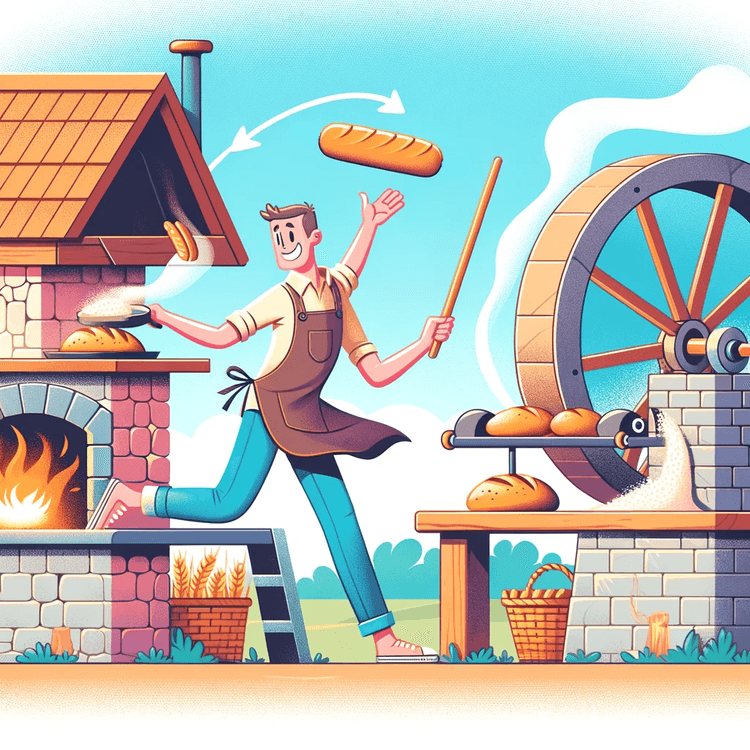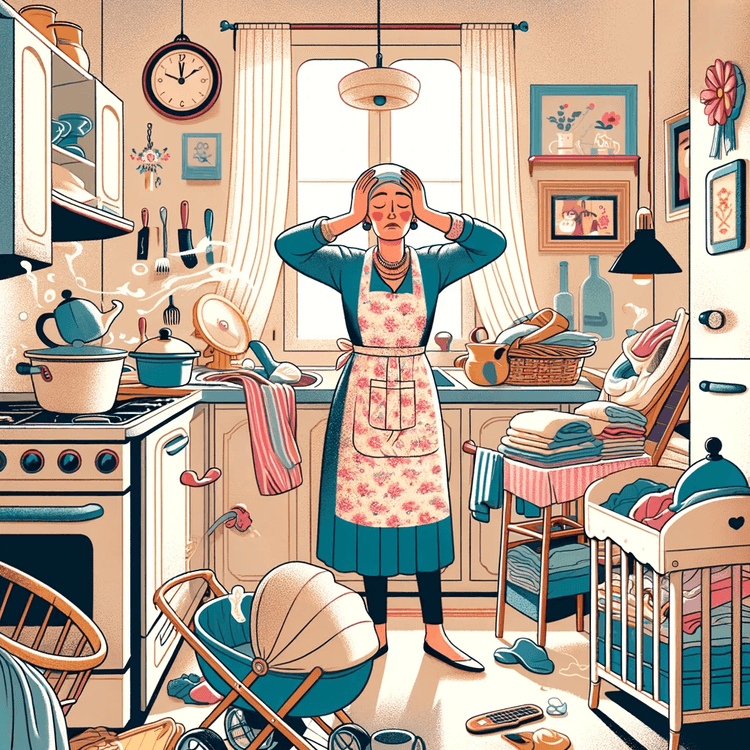Diving Into the Past: Unraveling the Astonishing Origin of 'Being at the Oven and the Mill'

November 23, 2023
11/23/2023
Here's the translated text:
Have you ever been drowned in two important tasks at once, feeling the stress build up, the pressure weighing heavily on your shoulders? Do you find yourself divided, trying to juggle between two contradicting demands, both needing your immediate attention? If so, then according to the French, you are trying to be 'At the Oven and the Mill'. But what does this peculiar and colorful expression mean? Where does it come from and how is it used in everyday conversation? Join us on this exciting adventure, a full-on journey into time and language, that will unveil the hidden history behind this picturesque phrase.
Introduction to the Expression
The French phrase 'Être au Four et au Moulin' literally translates to 'To be at the oven and the mill' in English, but this translation doesn't capture the essence of its true meaning. A close equivalent may be the idea of 'doing two things at once' or 'trying to be in two places at once'. However, the vivid imagery the French expression evokes gives it a unique and tangible flavor. It instantly transports us to the heart of a rustic french village, making us feel the flour on our fingers, the smell of freshly baked bread, all while reminding us of the harsh reality of never being able to perform two tasks with the same level of efficiency.
The Mysteries of the Origin
Indeed, 'Être au Four et au Moulin' has as picturesque an origin as it is profound. It's an expression rich in history, which dates back to the 17th century, telling us of the lives of peasant in France, under feudal law. The story behind this expression is tied to the daily life of these simple folk, who contributed to the functioning of their feudal lord's mills and ovens in exchange for a fee. The mill was used to grind grain into flour, whereas the communal oven was used to bake bread. The task of going to both the ,mill and the oven was an almost impossible endeavor to manage, perfectly illustrating the concept that one cannot be in two places at once or efficiently accomplish two tasks at once.
Practical Use of the Expression
Today, the expression 'Être au Four et au Moulin' useful in various contexts to express the difficulty of juggling two important tasks at once. It's a linguistic treasure that all French learners must know. So, to better understand how to use it, let's look at some concrete and telling examples:
1. Paul, visibly stressed, shares his frustration: "I can't finish my report and answer these calls at the same time!"
Marc, sympathetically, replies: "Well, you're trying to be at the oven and the mill, my friend!"2. "With managing my house and my job at the same time, I feel like I'm trying to be at the oven and at the mill. It's really exhausting but I need to continue."3. In the touching, realistic book called "Life before us" by Romain Gary, the main character, Madame Rosa, says with resignation: "I can't be at the oven and the mill", clearly showing that she is overwhelmed by all her responsibilities.

Lesson to Take Away
After this deep dive, one cannot help but be amazed by the fascinating power folk expressions have to take us back to the heart of a country's social and cultural history. The phrase 'At the Oven and the Mill' is a beautiful instance of how language can capture the essence of human experience, translate the tensions and demands of both past and present. Thus, next time you find yourself juggling multiple tasks, remember this expression and share its intriguing history with your friends!
Remember, learning popular expressions is a great method to enrich your vocabulary and make your French sound more natural. So, don't hesitate to dive into the fascinati,ng world of French phrases, keep learning, keep exploring, and have fun with the French language!
Le saviez-vous ?
Did you know that the phrase 'Être au Four et au Moulin' is used in many French literary works, including novels and plays, to illustrate the burden of multiple responsibilities? It's a beautiful way to understand the everyday life of the French throughout history and to truly get into the skin of the characters. Another reminder that language is truly the reflection of culture and its evolution!
Conclusion
That’s it! Now you are equipped to understand and use the expression 'At the Oven and the Mill' in everyday conversation. But more than that, you have gained a deep insight into the lives of the French in the past. You have gained a new appreciation for the beauty and hidden meaning behind these popular expressions which are a crucial part of the French language. Isn't it wonderful how a simple expression can transport us back in time and help us see the world through different eyes?
Continue your learning journey, keep exploring the world of French expressions, and most importantly, don't forget to have fun along the way! Good luck!

Subscribe to our newsletter
Latest posts
Browse all posts
Subscribe to our newsletter
Stay informed and get a free video

